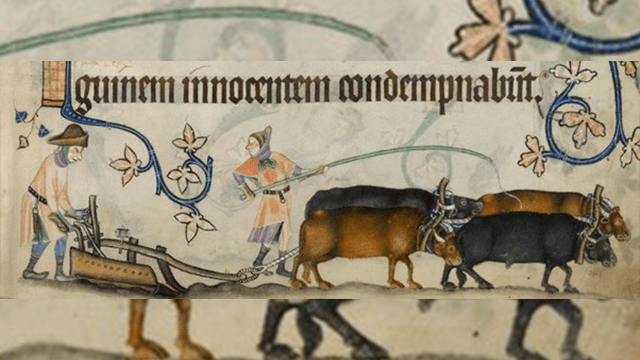
Image: "Luttrell Psalter," (Online: Encyclopedia Britannica, 14th Century), anonymous (public domain).
This pre-submission seminar investigates the emergence of the Peace of God movement across what was to become France between 980 and 1050 CE, and its coincidence with the onset of the Medieval Climate Anomaly (c.950-1250CE). The Peace of God movement occurred in the context of a rise in heresy, the eleventh-century Benedictine reform movement, and apocalyptic anxieties related to the Second Coming. Scholars have generally focused on the role of peace councils in managing internal conflicts that characterised the broader socio-political transformations of the early Capetian period. Christine Grundy's research has found that the region also experienced significant climatic variability driven by rising ambient and ocean temperatures, resulting in an increased incidence of droughts and floods.
Employing topographical analysis and paleoclimatic modelling, Christine's research suggests that these climatic extremes likely influenced the origin and development of the Peace of God movement. She will examine the movement across three case studies: Aquitaine, Burgundy, and the diocese of Cambrai, located in northern France, which illustrate the impact of climate change, where famine often served as a catalyst for holding Peace Councils.
Her findings suggest these Peace Councils provided benefits not only to civil and ecclesiastic elites, but also offered relief to wider publics experiencing severe environmental and social stress.
Location
Speakers
- Christine Grundy (MPhil pre-sub).
Event Series
Contact
- David Romney Smith